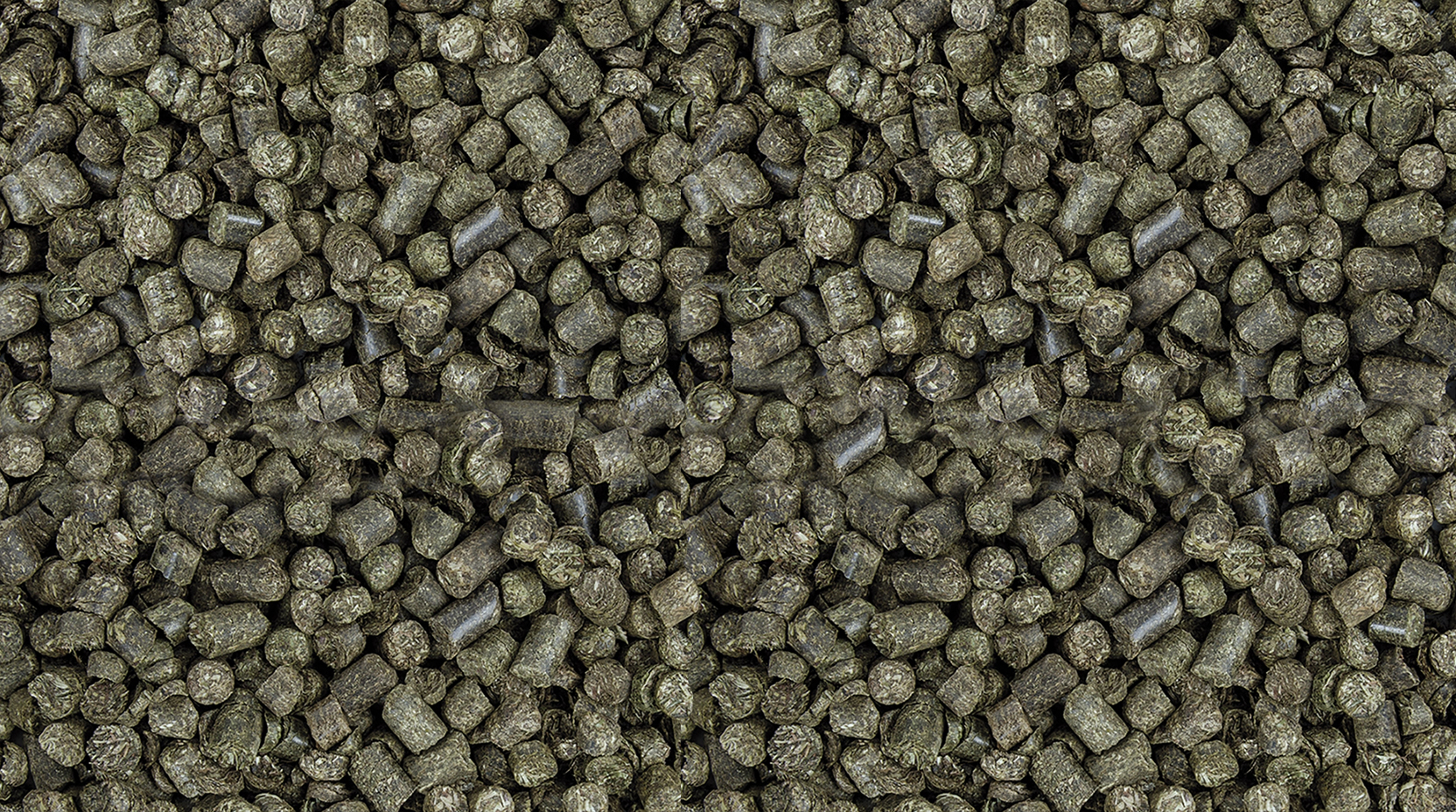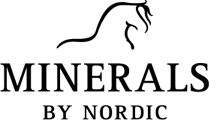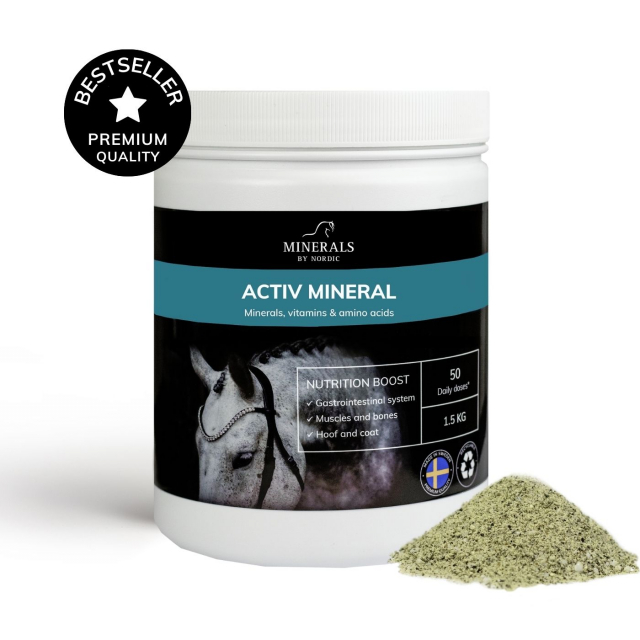
The basic feeding of the horse
A guide to introducing horse feeding - Everything you need to know. A horse's health and well-being are heavily dependent on proper nutrition. In this article, we explore the different types of feed that are essential to a horse's diet: concentrates, roughage, and minerals. A well-balanced diet is key to a healthy and happy horse.
Understanding a Horse's Nutritional Needs
Horses have unique nutritional needs that must be met to keep them healthy and energetic. This includes a balance of proteins, fats, carbohydrates, vitamins, and minerals.
Roughage - The Essential Foundation
Roughage is the most important part of a horse's feed when the horse does not have free access to grass. Roughage forms the foundation of a horse's diet and should always be available, as it is crucial for the horse's digestive system and overall health. Roughage includes:
- Hay - dried grass
- Haylage - wrapped grass
- Silage - preserved grass that is tightly packed and wrapped in plastic
- Straw - the dried stems and leaves of herbaceous plants after harvesting, i.e., when the seeds have been removed. It can be used for more fiber in the diet.
How Much Roughage Does a Horse Need?
Choosing high-quality hay and pasture is crucial. Good quality is characterized by freshness, nutritional value, and being free from mold or contaminants. If you are using wrapped roughage, you should always remove all plastic and check the bale before feeding it to the horse. It is important to know the nutritional value through a roughage analysis to balance roughage with other feeds to ensure the horse gets all the nutrients it needs. It is important to try to cover the horse's energy and protein needs already at the roughage level. You also need to consider seasonal impacts when building a horse's diet; for example, the availability of fresh pasture should also be considered.
If you're unsure how to interpret a roughage analysis or calculate a feed ration, we at Minerals by Nordic are happy to help you with this free of charge.

What is Concentrate Feed?
If the horse's nutritional needs cannot be met by the nutrients in roughage, you may need to add a concentrate feed. Concentrate feed often consists of grains such as oats, barley, corn, and complete feeds in the form of pellets or muesli that provide concentrated energy to the horse. There are also grain-free alternatives that have been shown in research to have positive properties for horses, as they are easy to digest and metabolize.
Giving too much grain to horses can be harmful for several reasons:
- Carbohydrate Overload: Grains are high in starch and sugar, which can lead to carbohydrate overload. This can, in turn, cause problems such as laminitis (inflammation of the hooves) and colic, a severe abdominal pain.
- Digestive Problems: Horses have a sensitive digestive system. A sudden increase in grain can disrupt the microbial balance in the large intestine, leading to digestive disorders and diarrhea.
- Weight Gain and Obesity: Grains are calorie-dense and can cause weight gain or obesity in horses that are not sufficiently active. Obesity can lead to a range of health issues, including metabolic syndrome and an increased risk of laminitis.
- Nutritional Balance: A diet that is too heavy in grains may lack other important nutrients like fiber, which is crucial for the horse's digestive health. It can also lead to an imbalance of minerals and vitamins.
- Behavioral Changes: High levels of grain can cause behavioral changes in some horses, including increased restlessness and irritability. This is due to rapid changes in blood sugar levels.
What Kind of Concentrate Feed Does My Horse Need?
The choice of feed depends on the horse's age, activity level, health status, and the rest of its diet. At Minerals by Nordic, we recommend grain-free alternatives if you need to supplement roughage. We are happy to help you calculate your horse's needs free of charge.
Do you need to add minerals to your horse's diet?
The soils that provide pasture and roughage become more depleted of minerals each year if they are not properly enriched through fertilization. Therefore, almost all horses need a supplement of minerals in their diet to meet their nutritional needs. Minerals such as calcium, phosphorus, and magnesium are crucial for a horse's bones, muscles, and overall health. We recommend Activ Mineral, which is a natural mineral supplement with high absorption in the body; it also contains all 20 amino acids that play important roles in all of the horse's bodily functions.
A balanced diet is crucial for a horse's long-term health, performance, and well-being. A proper diet greatly impacts a horse's quality of life. Overfeeding and underfeeding are common mistakes. Additionally, there are many misconceptions about equine nutrition that can lead to incorrect feeding practices. Feel free to contact us if you need help reviewing your horse's diet.
FAQ Horse Feeding
What is the most important thing to consider when choosing concentrate feed for horses?
Answer: It is important to consider the horse's age, activity level, and health status when choosing concentrate feed.
How do I know if my roughage is of good quality?
Answer: Good quality is characterized by freshness, nutritional value, and the absence of mold or contaminants.
How often should I give minerals to my horse?
Answer: It depends on the horse's diet and needs. A balanced diet should naturally include the necessary minerals, but sometimes supplements may be required.
Is it harmful to overfeed horses with concentrate feed?
Answer: Yes, overfeeding with concentrate feed can lead to health issues such as obesity and nutritional deficiencies.
Can young and old horses have the same diet?
Answer: No, young and old horses have different nutritional needs and should be fed accordingly.

 SWE
SWE

 ENG
ENG NO
NO AX
AX DE
DE